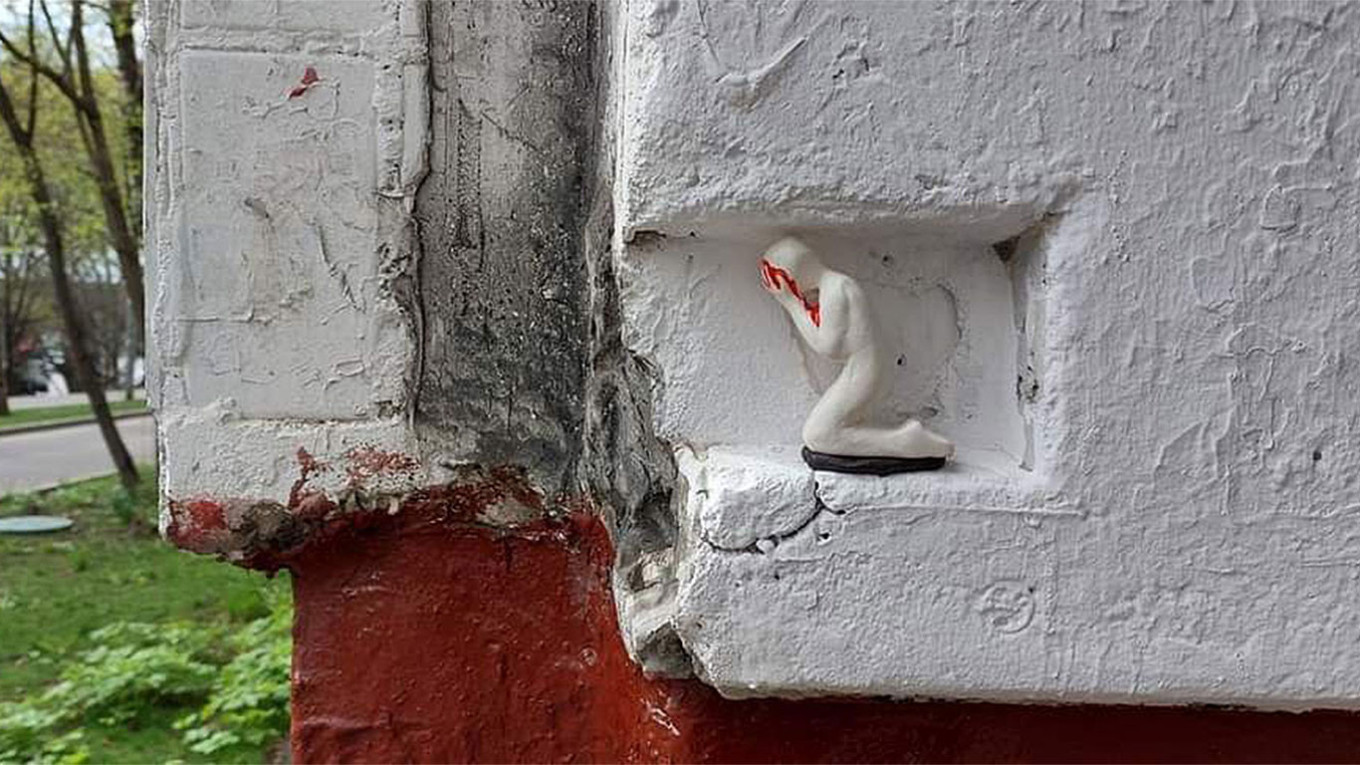If you happen upon a small ceramic statue tucked inside a drainpipe or half-buried in a pile of leaves, chances are it's a work by Elena Skvortsova.
Skovtsova is a ceramicist living in Moscow. She creates decorative plates, small statues, vases, and other works that she exhibits in galleries and on the street. She often tucks a small figure in a alcove in a broken wall (above), as a way of sharing her feelings. Their meanings are easy to dicipher and immediately clear to her compatriots.
As far back as she can remember, Skvortsova has always drawn. When she was seven, she began to attend classes at the House of Pioneers. There she met adult painters and ceramists and began to study these arts. She graduated from a Moscow Art School and then studied ceramics at the Stroganov Russian State University of Design and Applied Arts.
Today she is a member of the Artists Union of Russia and has her own studio. “I prefer doing everything by hand. The process is very interesting. You put something in the kiln, but you can't be sure what the result will be," she told The Moscow Times.
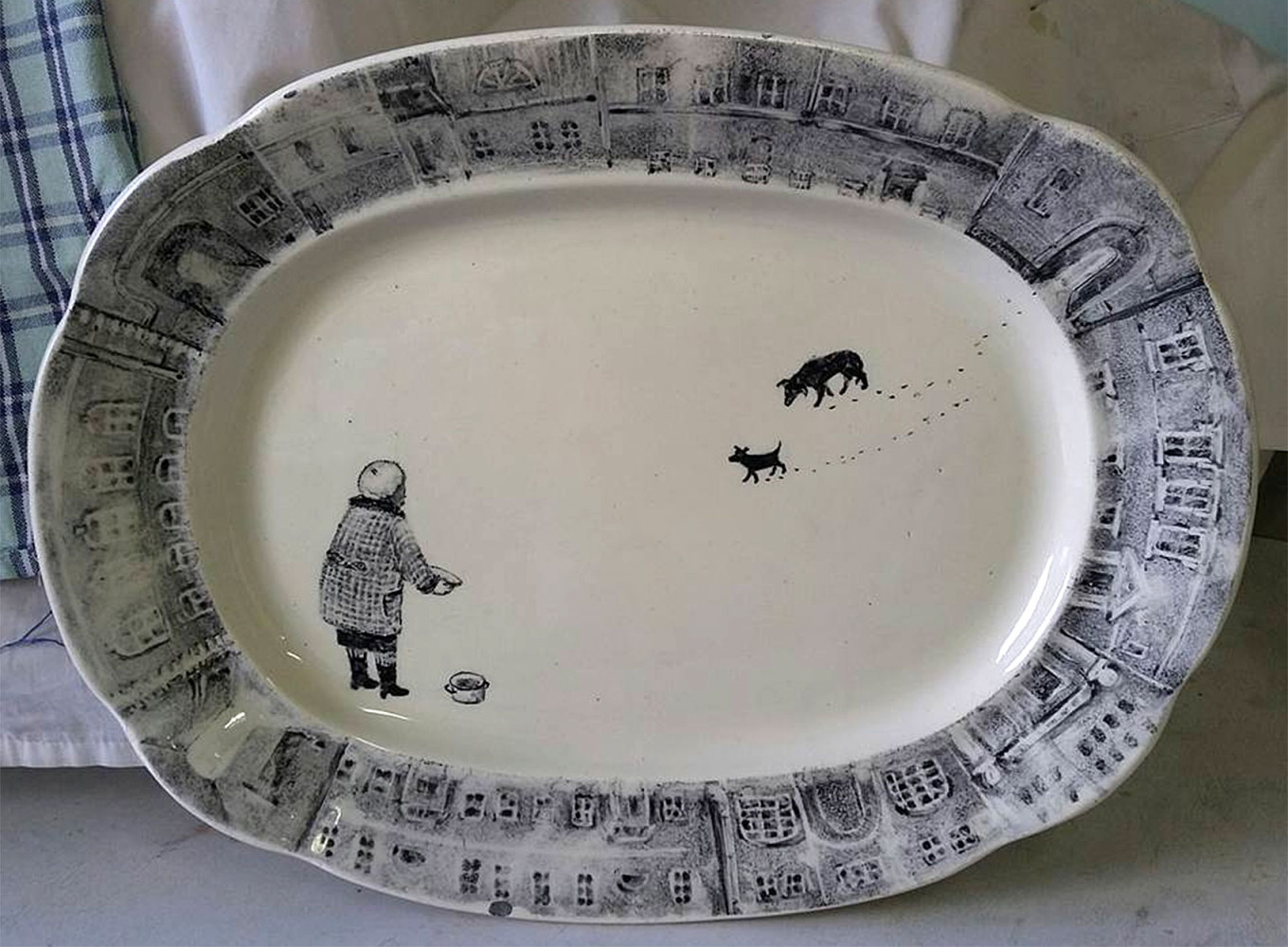
She prefers small pieces, such as “What Are You Doing Here?” The work is very simple: a goat breaking through a fence. She uses a fence in another piece called "The Long Road Home" that shows a man leaning on a fence as he walks along a street. Skvortsova likes the simplicity of these works and imagery. “I don't like it when it is hard to understand what a piece of art means. I think a work of art should have an idea that is understandable even after centuries.”
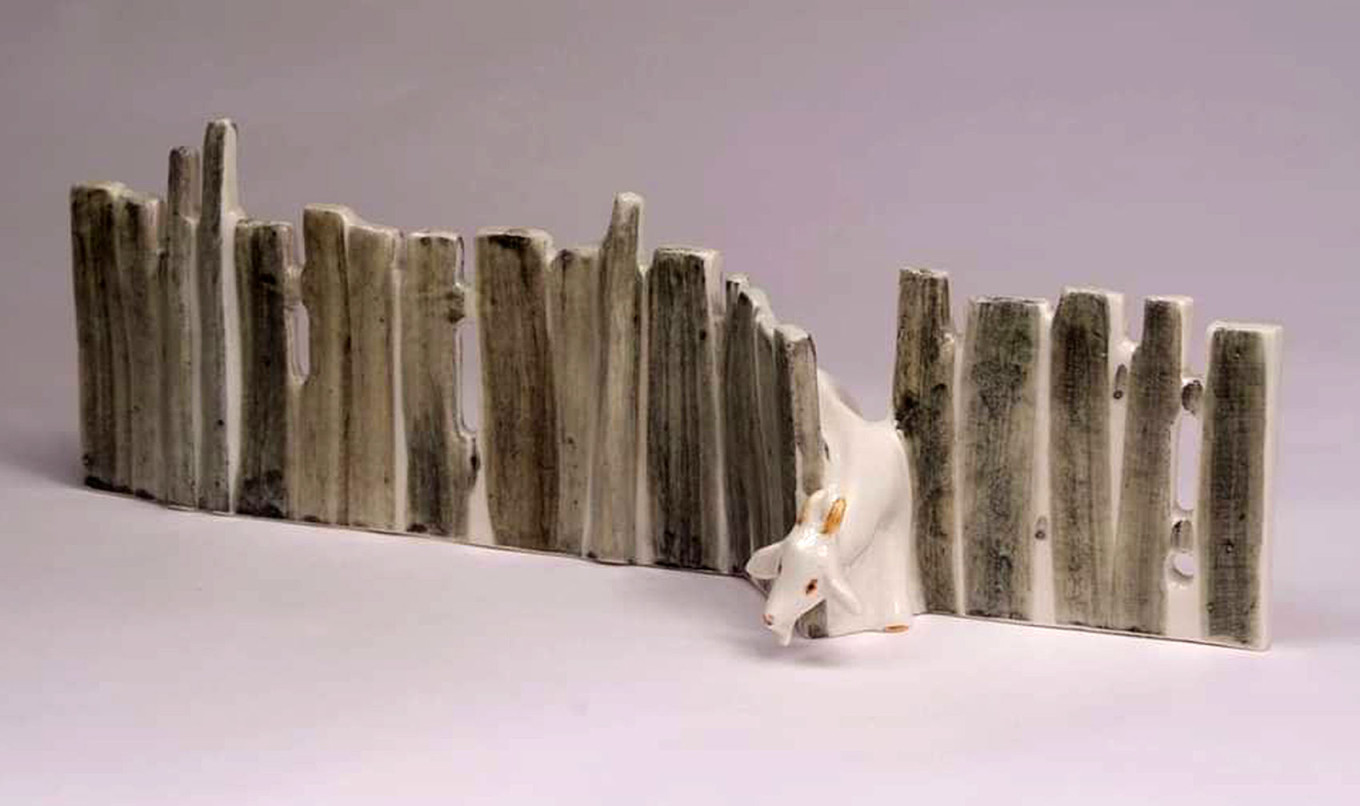
Skvortsova grew up in the Soviet Union, and many of her works are reminiscent of that period. But she doesn't miss that time. “I don't want people to think that our past was better than our present.”
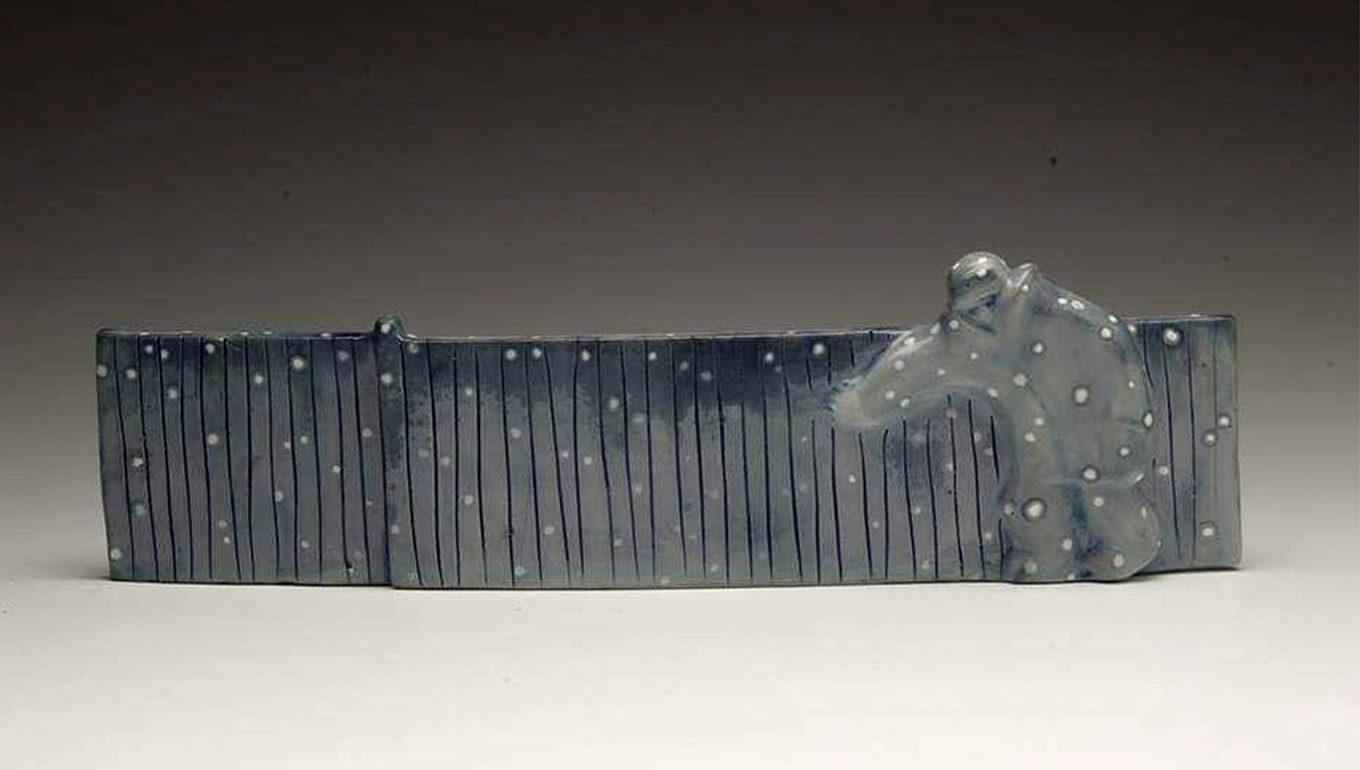
When people see her work, many of them feel solitude. “It's not loneliness,” Elena Skvortsova said. “In Russian, we have the word “odinochestvo,” but it has the negative meaning. I think it's more appropriate to say “solitude” because it is more positive. Some of my works express the solitude that occurs when a person starts to think about something good. It is a time that can be used for reflection, inner searching or growth or enjoyment of some kind”
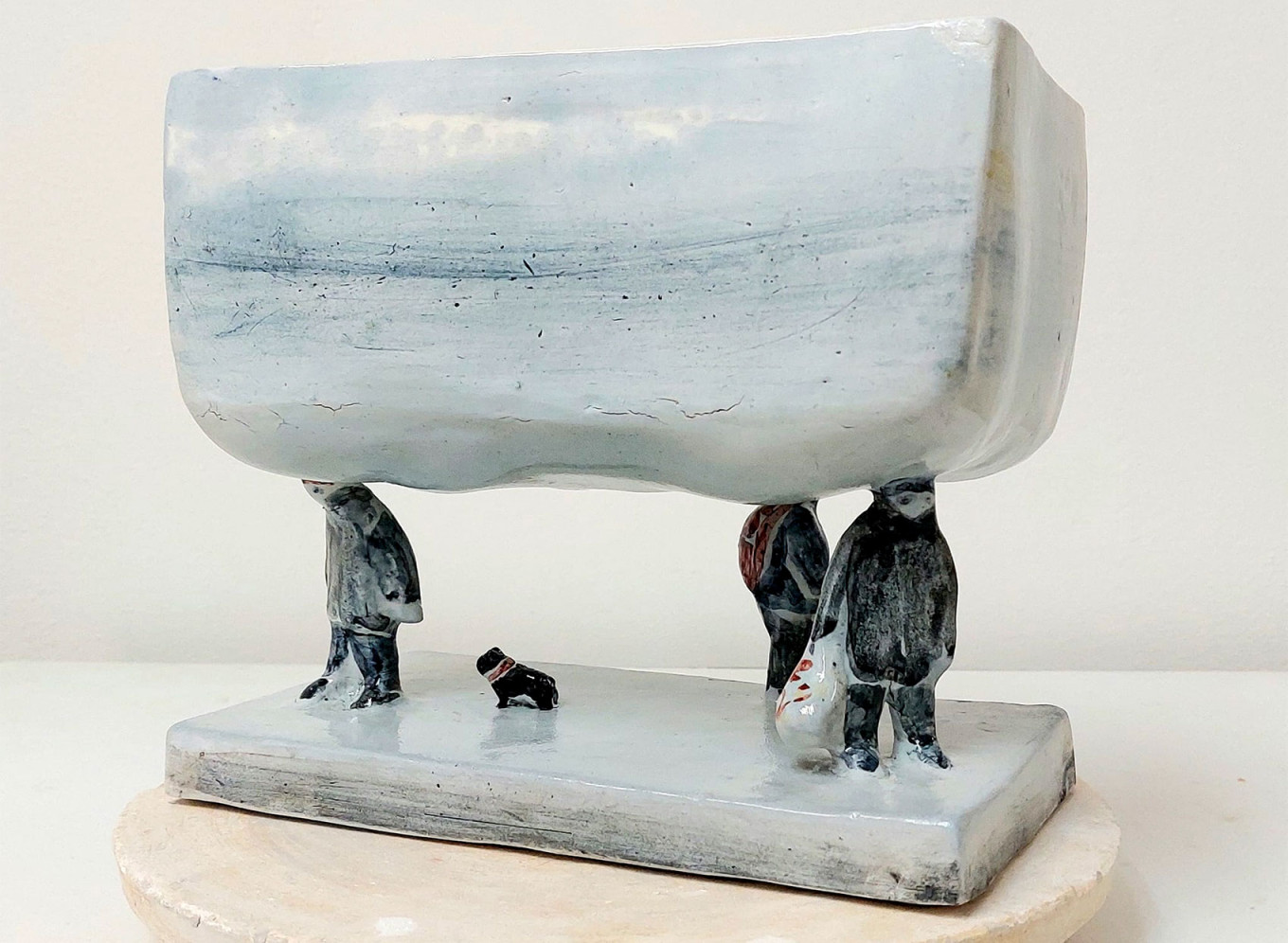
Skvortsova uses her street art to express her opinions about the situation in the country and world. She makes them quickly and places them early in the morning when no one sees her. Usually by evening, most of them are gone.
The work "Pipeline" disappeared quickly.

No one noticed "The King in His Kingdom." Skvortsova had placed him in a very inconspicuous spot, and he "lived" the longest—about ten days. Skvortsova evenually took him back to her studio.
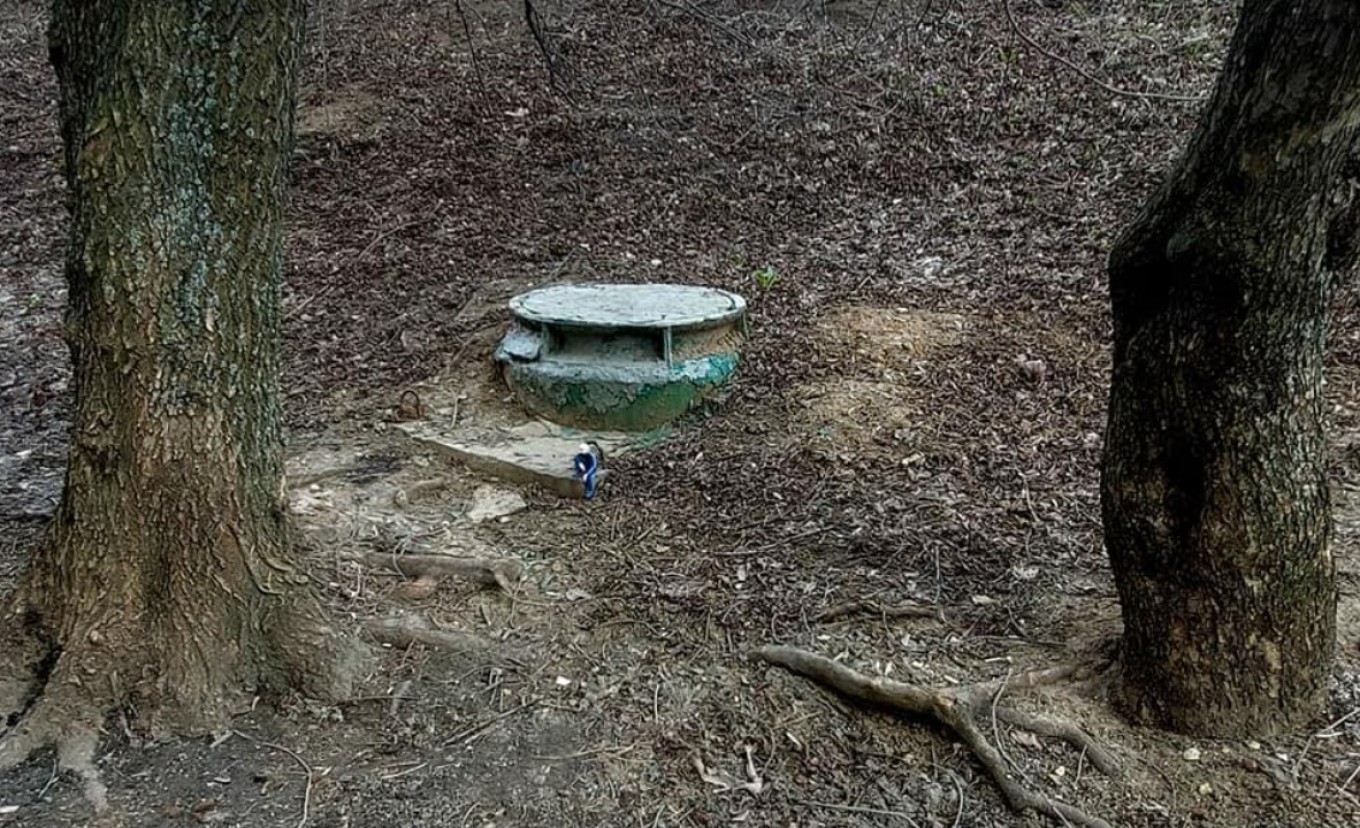
There was a period when Elena Skvortsova was so depressed by the situation in the world that couldn't work. But she is working again, selling some works and making others for exhibitions.
“I hope I will have another big exhibition soon, but I can't say when. I'd like my works to become as funny as they were two years ago, but my work is influenced by my emotions, so it depends on the situation.”
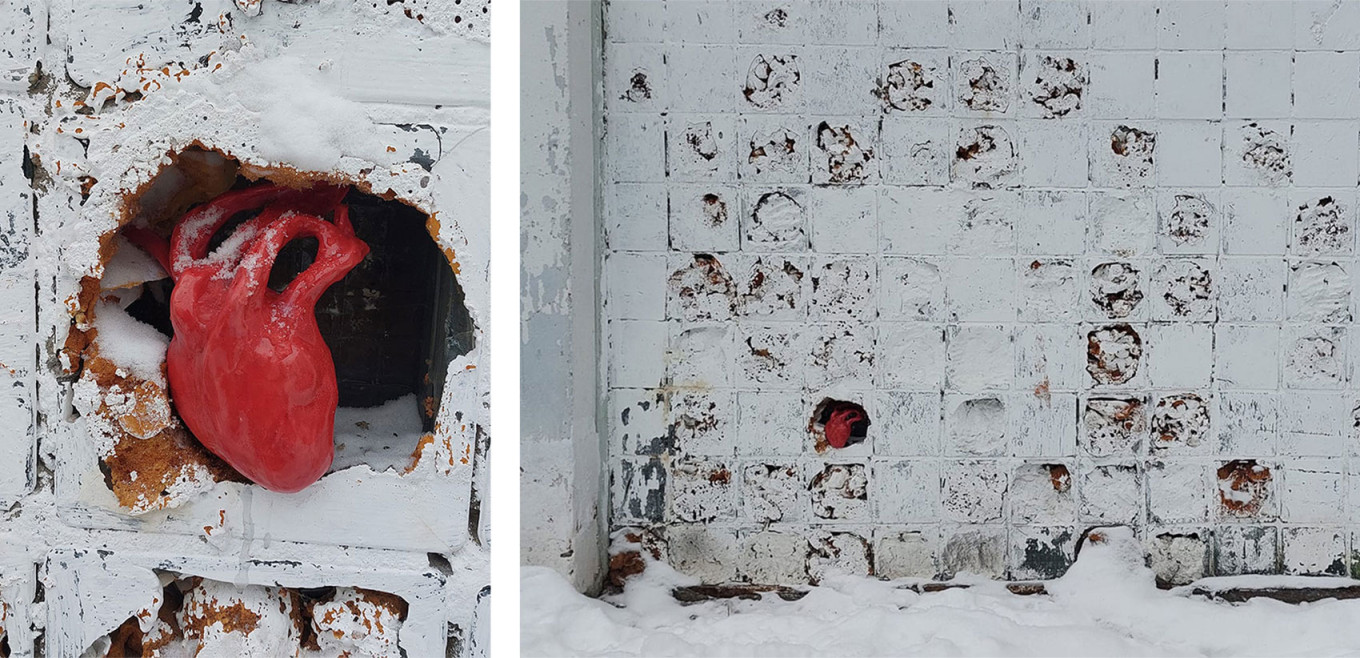
A Message from The Moscow Times:
Dear readers,
We are facing unprecedented challenges. Russia's Prosecutor General's Office has designated The Moscow Times as an "undesirable" organization, criminalizing our work and putting our staff at risk of prosecution. This follows our earlier unjust labeling as a "foreign agent."
These actions are direct attempts to silence independent journalism in Russia. The authorities claim our work "discredits the decisions of the Russian leadership." We see things differently: we strive to provide accurate, unbiased reporting on Russia.
We, the journalists of The Moscow Times, refuse to be silenced. But to continue our work, we need your help.
Your support, no matter how small, makes a world of difference. If you can, please support us monthly starting from just $2. It's quick to set up, and every contribution makes a significant impact.
By supporting The Moscow Times, you're defending open, independent journalism in the face of repression. Thank you for standing with us.
Remind me later.



